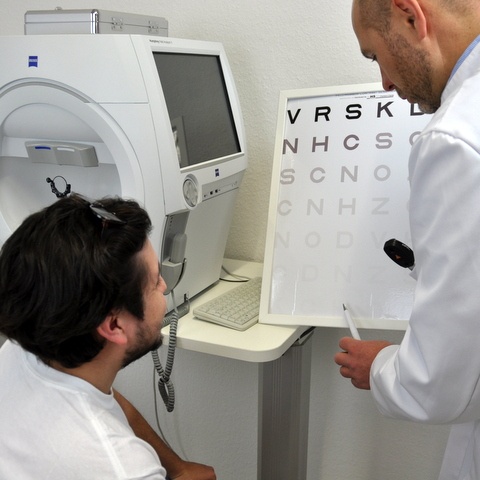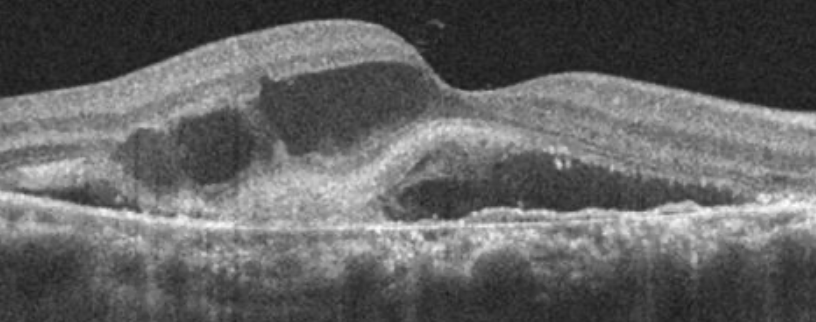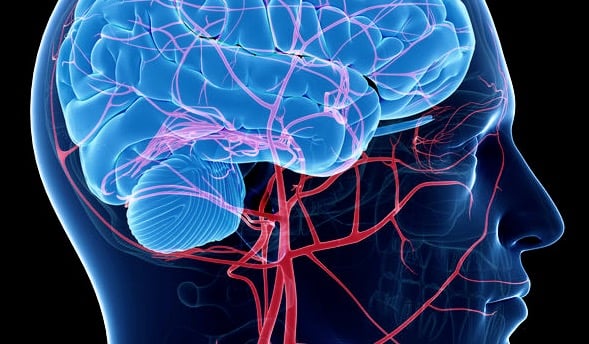
Ever wondered why some people seem to stay sharp as a tack while others experience cognitive decline earlier than expected? Aging can be a bit daunting, especially when it comes to our brains. But here's the good news: by understanding our concerns and how our habits—especially sleep—impact brain health, we can take steps to keep our minds vibrant. Let's dive into eight common worries about early brain aging, see how they're all interconnected, and discover how sleep plays a pivotal role in this journey.
The 8 Concerns Accelerating Early Brain Aging and How They're Connected
1. Forgetfulness and Memory Lapses Ever walked into a room and forgotten why you went there? You're not alone! Many of us worry that these little memory slips are signs of cognitive decline. In fact, according to a survey by the Alzheimer's Association, approximately 60% of adults are concerned about memory loss. Early memory lapses can indeed be indicators of accelerated brain aging, potentially leading to conditions like mild cognitive impairment (MCI). Keeping your brain engaged through puzzles, reading, or learning new hobbies can boost your memory and help slow down the aging process.
2. The Shadow of Dementia and Alzheimer's Disease The thought of developing dementia, particularly Alzheimer's disease, is a significant concern for many. Alzheimer's is the most common form of dementia, affecting an estimated 6.2 million Americans age 65 and older, according to the Alzheimer's Association's 2021 report. Maintaining a healthy lifestyle and staying socially active may lower your risk and support overall brain health.
3. Losing Independence We all cherish our ability to live life on our own terms. The fear of losing independence due to declining physical or mental health can be overwhelming. A study published in the Journal of Aging and Health found that 70% of older adults fear losing their independence more than they fear death. Cognitive decline can impact decision-making and daily activities, affecting our autonomy. Regular exercise and mental activities can help preserve independence longer, keeping both our bodies and minds fit.
4. Becoming a Burden to Loved Ones Nobody wants to feel like they're weighing down their family. The idea of becoming a financial or emotional burden is a common concern. In a survey by the AARP, 55% of adults over 50 worry about becoming a burden to their families as they age. Open conversations and proactive planning can ease this concern, ensuring that support systems are in place and family dynamics remain strong.
5. Physical Health Decline Staying active isn't just about the body; it's about the mind too! Declining physical health can limit our activities and joy in life, and it's closely linked to brain health. According to the Centers for Disease Control and Prevention (CDC), only 23% of adults meet the guidelines for both aerobic and muscle-strengthening activities. Poor physical condition can reduce blood flow to the brain, speeding up aging. Incorporating regular physical activity you enjoy—like walking, dancing, or yoga—can keep both body and mind in top shape.
6. Facing Chronic Diseases Conditions like diabetes or hypertension can feel daunting due to their long-term effects. The CDC reports that 6 in 10 adults in the U.S. have a chronic disease, and 4 in 10 have two or more. Chronic illnesses can cause inflammation and vascular issues, contributing to faster brain aging. Managing health conditions proactively with your healthcare provider can minimize their impact on your brain health.
7. Financial Uncertainties Money worries can keep anyone up at night. According to a survey by the American Psychological Association, 72% of adults report feeling stressed about money at least some of the time. Chronic stress can harm brain cells over time, accelerating aging. Seeking financial advice to plan ahead and practicing stress-reducing activities like meditation or hobbies can alleviate this anxiety and protect your brain.
8. Sleep Troubles Counting sheep and still wide awake? Poor sleep affects how we feel and function daily. The National Sleep Foundationreports that 35% of adults rate their sleep quality as "poor" or "only fair." Sleep issues can lead to harmful changes in the brain, potentially accelerating aging. Establishing a soothing bedtime routine—think warm tea, a good book, and unplugging from screens—supports brain health and reduces aging risks.
Connecting the Dots: How Sleep Links Our Concerns
Notice how sleep troubles are a common thread weaving through many of these concerns? Poor sleep doesn't just make us feel groggy; it has profound effects on our overall health and can exacerbate other issues like memory loss, mood changes, and even the risk of chronic diseases. In fact, sleep issues can be both a symptom and a cause of several of these concerns, creating a cycle that accelerates brain aging.
How Sleep Issues Accelerate Early Brain Aging
While aging is a natural part of life, certain factors can speed up the aging process of our brains, and sleep—or the lack thereof—is a significant one. Recent research has shown that poor sleep can rapidly accelerate early brain aging, affecting memory, cognition, and overall brain health. Let's explore the six key sleep issues that play a pivotal role in this process:
1. Short Sleep Duration Consistently sleeping less than seven hours per night doesn't just leave you feeling tired—it can have serious health implications. The American Academy of Sleep Medicine recommends that adults sleep at least seven hours per night for optimal health. However, according to the CDC, about 35% of adults sleep less than seven hours. Short sleep duration is linked to an increased risk of chronic conditions such as obesity, diabetes, hypertension, heart disease, stroke, anxiety, and depression. A study published in the journal Sleep found that individuals who slept less than six hours per night had a 20% faster cognitive decline than those who slept seven to eight hours.
2. Poor Sleep Quality Even if you're spending enough time in bed, poor sleep quality can leave you feeling unrefreshed and fatigued during the day. According to the National Sleep Foundation, 50 to 70 million Americans have a sleep disorder. Poor sleep quality is often associated with conditions like insomnia or sleep apnea and may increase the risk of developing mood disorders such as depression and anxiety. A study in the Journal of Neurology found that poor sleep quality is associated with a 33% increased risk of cognitive decline.
3. Difficulty Falling Asleep Struggling to fall asleep is a common symptom of insomnia, affecting 10% to 15% of people chronically, according to the National Institutes of Health. This difficulty often leads to reduced total sleep time and can result in daytime impairments. Racing thoughts or anxiety about not being able to sleep can exacerbate the problem. Chronic insomnia has been linked to increased inflammation and metabolic changes that can accelerate brain aging.
4. Difficulty Staying Asleep Frequent awakenings during the night can fragment your sleep, reducing its restorative quality. Sleep fragmentation is common in older adults, with studies showing that up to 30% experience nighttime awakenings. This often results in feeling unrefreshed upon waking and can contribute to daytime fatigue and cognitive impairments. Research published in the journal Sleep Medicine suggests that sleep fragmentation is associated with a higher risk of cognitive decline and Alzheimer's disease.
5. Early Morning Awakening Waking up earlier than desired and being unable to return to sleep can lead to insufficient total sleep time. Early morning awakening is often associated with depression or changes in circadian rhythms. According to a study in the Journal of Clinical Psychiatry, about 10% to 15% of the general population experiences early morning awakening, with higher prevalence in older adults. This sleep disruption can result in daytime tiredness and affect overall functioning.
6. Daytime Sleepiness Excessive daytime sleepiness affects about 20% of adults in the United States, according to the American Sleep Apnea Association. It may be caused by sleep deprivation, obstructive sleep apnea, or sedating medications. Daytime sleepiness is associated with an increased risk of accidents, particularly while driving; the National Highway Traffic Safety Administration estimates that drowsy driving is responsible for 100,000 crashes annually.
The Science Behind Sleep and Brain Aging
These sleep problems don't just make you feel groggy—they have profound effects on brain health. Poor sleep can lead to the accumulation of beta-amyloid proteins in the brain, which are associated with Alzheimer's disease. A study by Dr. Matthew Walker at the University of California, Berkeley, found that a lack of deep sleep is associated with higher levels of beta-amyloid. Sleep disturbances can also cause chronic inflammation and oxidative stress, damaging neurons and accelerating cognitive decline.
Research published in Nature Communications indicates that individuals who consistently sleep six hours or less per night in their 50s and 60s have a 30% higher risk of developing dementia later in life compared to those who sleep seven hours. Poor sleep quality and disruptions in sleep patterns interfere with memory consolidation and other cognitive processes, potentially leading to early-onset cognitive impairments.
Taking Action: How to Improve Sleep and Protect Your Brain
Understanding the impact of sleep on brain aging underscores the importance of addressing sleep issues early. Here are some strategies to improve sleep quality and, in turn, support brain health:
- Establish a Regular Sleep Schedule: Going to bed and waking up at the same time each day helps regulate your body's internal clock. A study in the Sleep Health journal found that consistent sleep schedules are associated with better sleep quality.
- Create a Restful Environment: Ensure your bedroom is dark, quiet, and cool. Limiting screen time before bed can also promote better sleep. Blue light from screens can suppress melatonin production, as shown in research by Dr. Charles Czeisler at Harvard Medical School.
- Manage Stress: Techniques like deep breathing, meditation, or gentle yoga before bed can reduce anxiety and help you fall asleep more easily. A meta-analysis in JAMA Internal Medicine found that mindfulness meditation improved sleep quality in older adults with moderate sleep disturbances.
- Limit Stimulants: Reduce intake of caffeine and nicotine, especially in the hours leading up to bedtime. Caffeine has a half-life of about five hours and can interfere with sleep if consumed too late in the day.
- Seek Professional Help: If sleep problems persist, consult a healthcare professional for evaluation and possible treatment options. Sleep disorders like sleep apnea require medical intervention.
Wrapping It All Up
See how our concerns and sleep habits are interconnected? Addressing one area can positively impact others, creating a ripple effect that benefits your brain health. Improving sleep can boost memory, reduce the risk of chronic diseases, and alleviate stress, ultimately slowing down the aging process of your brain.
Aging doesn't have to be scary. By understanding these concerns and the crucial role sleep plays in brain health, you're already taking a big step toward a healthier, happier mind. So take it one day at a time, make small, positive changes, and remember—you've got this!
Cited publications:
- National Sleep Foundation. (2008). Sleep in America Poll. [Referenced for statistics on difficulty falling asleep]
- Chang, A.M., Aeschbach, D., Duffy, J.F., & Czeisler, C.A. (2015). Evening use of light-emitting eReaders negatively affects sleep, circadian timing, and next-morning alertness. Proceedings of the National Academy of Sciences, 112(4), 1232-1237.
- Lichstein, K.L., Taylor, D.J., McCrae, C.S., & Petrov, M.E. (2017). Insomnia: Epidemiology and risk factors. In M.H. Kryger, T. Roth, & W.C. Dement (Eds.), Principles and Practice of Sleep Medicine (6th ed., pp. 761-768). Elsevier.
- Gross, R.T., & Borkovec, T.D. (1982). Effects of a cognitive intrusion manipulation on the sleep-onset latency of good sleepers. Behavior Therapy, 13(1), 112-116.
- Harvey, A.G. (2000). Pre-sleep cognitive activity: A comparison of sleep-onset insomniacs and good sleepers. British Journal of Clinical Psychology, 39(3), 275-286.
- Bugg, J.M., & Scullin, M.K. (2013). Controlling intentions: The surprising ease of stopping after going relative to stopping after never having gone. Psychological Science, 24(12), 2463-2471.
- Syrek, C.J., & Antoni, C.H. (2014). Unfinished tasks foster rumination and impair sleeping—Particularly if leaders have high performance expectations. Journal of Occupational Health Psychology, 19(4), 490-499.
- McSorley, V.E., Bin, Y.S., & Lauderdale, D.S. (2019). Associations of sleep characteristics with cognitive function and decline among older adults. American Journal of Epidemiology, 188(6), 1066-1075.
- Fortier-Brochu, E., & Morin, C.M. (2014). Cognitive impairment in individuals with insomnia: clinical significance and correlates. Sleep, 37(11), 1787-1798.
- Kyle, S.D., Sexton, C.E., Feige, B., Luik, A.I., Lane, J., Saxena, R., et al. (2017). Sleep and cognitive performance: cross-sectional associations in the UK Biobank. Sleep Medicine, 38, 85-91.
- Winer, J.R., Deters, K.D., Kennedy, G., Jin, M., Goldstein-Piekarski, A., Poston, K.L., et al. (2021). Association of short and long sleep duration with amyloid-β burden and cognition in aging. JAMA Neurology, 78(10), 1187-1196.
- Edinger, J.D., Means, M.K., Carney, C.E., & Krystal, A.D. (2008). Psychomotor performance deficits and their relation to prior nights' sleep among individuals with primary insomnia. Sleep, 31(5), 599-607.
Disclaimer: The information provided in this blog is for educational and informational purposes only and is not intended as medical or professional advice. While efforts have been made to ensure the accuracy of the content based on research available up to September 2024, newer studies may have emerged since then. The statistics and findings mentioned are general in nature and may not apply to everyone's individual circumstances. This blog should not be used as a substitute for professional diagnosis or treatment of any medical or sleep-related condition. Always consult a qualified healthcare provider with any questions or concerns you may have regarding your health, sleep patterns, or any medical conditions. The author and publisher are not responsible for any adverse effects or consequences resulting from the use of the information presented in this blog.





Comments
Currently, there are no comments. Be the first to post one!